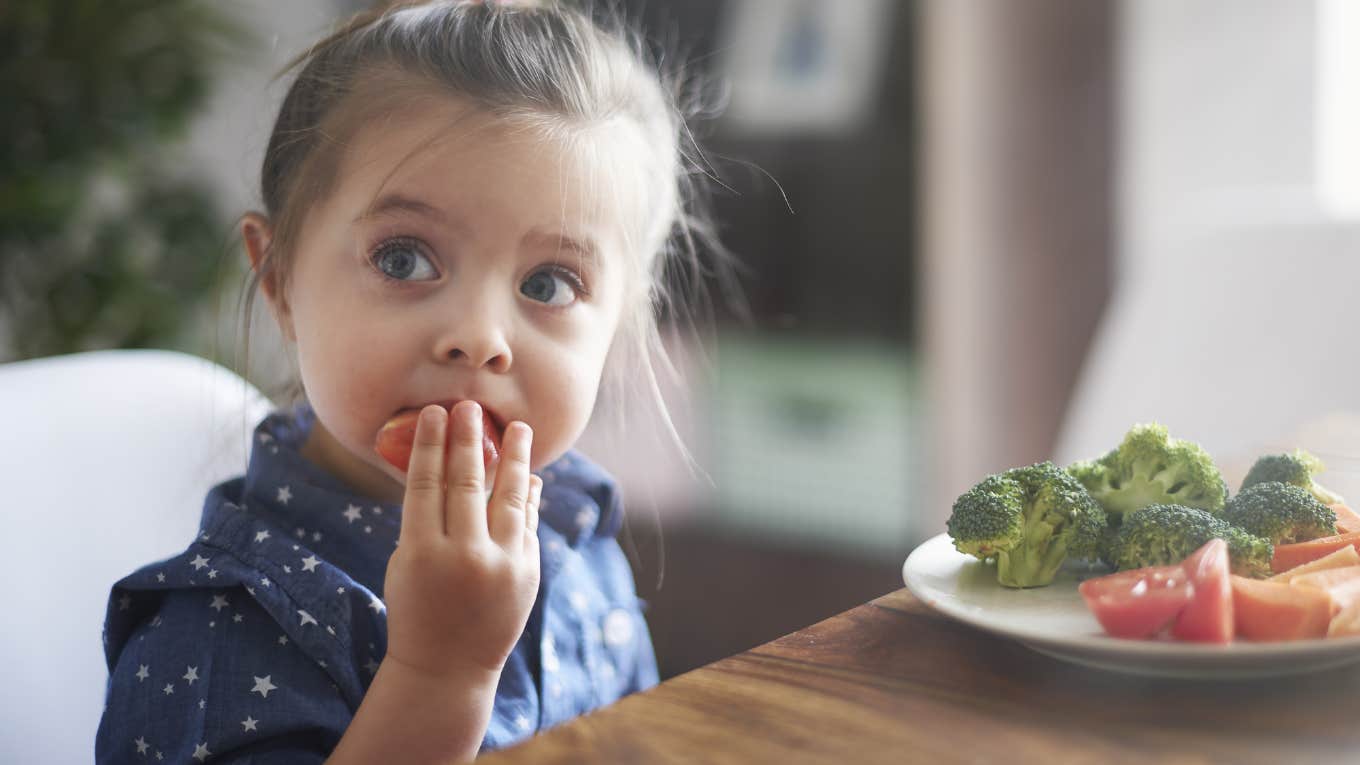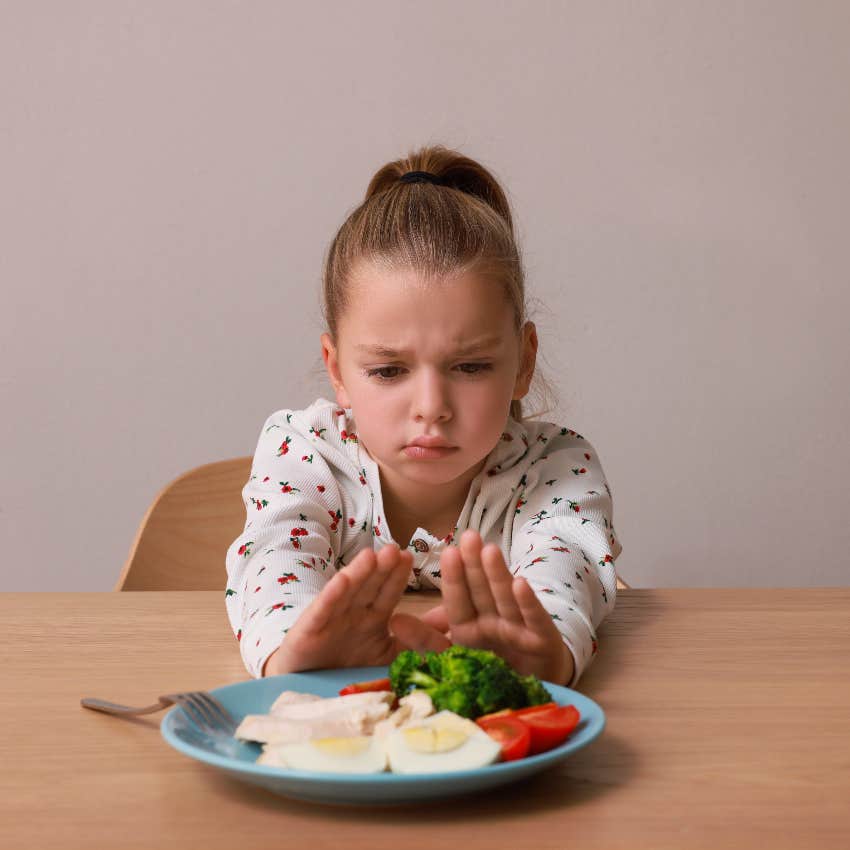Mom Puts Note In 3-Year-Old's Lunchbox After Her Teacher Told Her She Needs To Eat All Her 'Good Food' Before The 'Bad Food'
She felt her daughter's teacher had overstepped and shouldn't be lunch-shaming a 3-year-old.
 gpointstudio / Shutterstock
gpointstudio / Shutterstock The relationship a person has with food starts at a very young age. In fact, according to some dieticians, it begins in infancy. And the way adults — whether it be parents, relatives, or teachers — talk about food has a major impact on kids.
One mom named Caroline, who posts under the username @pezzi.shop, was understandably frustrated when she heard what her 3-year-old daughter's teacher had to say during lunchtime.
The mom left a note in her daughter's lunchbox after her teacher told her daughter to eat all her 'good food' before the 'bad food.'
"Feeling grateful for those who have given me the knowledge and confidence to write this note to my three-year-old's preschool teacher," Caroline wrote over her video showing the lunch she packed for her daughter. Inside the lunch box was a sandwich, slices of cucumber, slices of oranges, a few cut-up strawberries, and a cookie.
Caroline decided to write the note after her daughter, Evelyn, informed her that her preschool teacher told her that she needed to eat all of her "good" food before eating the "bad" food. According to the teacher, "She couldn’t have her cookie before eating her sandwich and cucumbers." Hearing this, Caroline was rightfully upset and annoyed at the teacher's instruction.
She quickly reassured her daughter that there was so such a thing as "good" or "bad" food and that food is just food.
The mom admitted that, while her internal dialogue regarding nutrition in childhood was less than ideal, she has since become equipped with the knowledge and language to help her own kids have a healthier relationship with food. Thanks to the moms and experts she follows on social media, Caroline claimed to be "armed with better responses, knowledge, and practices for [her] kids."
She pointed out that 3-year-olds shouldn't be made aware of what they're eating, especially using the terms good versus bad.
Putting a label on certain goods can create a negative association and lead to feelings of guilt and shame that can carry through to adulthood and potentially lead to an eating disorder, which affects at least 9% of the global population.
Caroline also ascribed to her daughter the importance of a balanced diet. "If you only eat carrots or broccoli your body won’t have [the] protein it needs to grow strong muscles. If you only eat chicken, your body won’t have enough energy to do things like run and play all day long," she explained. "We need little bits of everything to make sure that we are able to learn and play and grow all day long."
In response to the teacher's remark, Caroline wrote a note that she taped to the inside of her daughter's lunchbox. The note read: "Evelyn has our permission to eat lunch in any order she chooses."
She explained that none of the foods she's packed for her daughter are "bad" or "good," and that it's just food. Everything packed for her toddler is meant to give her a balanced diet and shouldn't be questioned.
Children shouldn't be presented with the concept of morality when it comes to food.
In 2020, a registered dietician named Jennifer Anderson shared a viral Instagram post urging parents to stop shaming certain food groups because of the damage that it can do to children. She explained that it "hurts" people when they hear that certain foods are considered "bad."
"Please, don't tell your child school lunches are bad, unhealthy, or only for 'poor kids.' One, these statements are false. And two, you have no idea how one comment from an unhungry child to a child at risk of hunger can cause long-term damage," Anderson wrote. "When stigmatized kids skip a school lunch, they miss tons of nutrition that they can't get later."
 Photo: New Africa / Shutterstock
Photo: New Africa / Shutterstock
"This lack of nutrition builds up over time," she added. "It snowballs. It creates deficiencies. It creates difficulty learning and succeeding in school. It causes long-term issues."
According to No Kid Hungry, in a pre-pandemic survey, nearly 60% of children from low-income communities said they had come to school hungry, and the majority of those kids admitted that it makes school difficult. Of those children, 12% were too distracted by their hunger to be able to tackle their evening homework.
It's important that teachers create positive environments for their students, and something that doesn't achieve this goal is lunch-shaming little children for what their parents have packed for them, or the order they choose to eat.
Some parents may be struggling to put food on the table, and all they can afford to put in their kids' lunchboxes are a pack of donuts or some cookies. Other families may have dealt with disordered eating and are working to create healthy relationships with food
Whatever the case may be, teachers have no right to insert themselves or make judgments on what a child is eating. As Caroline put it — food is food.
Nia Tipton is a Chicago-based entertainment, news, and lifestyle writer whose work delves into modern-day issues and experiences.

